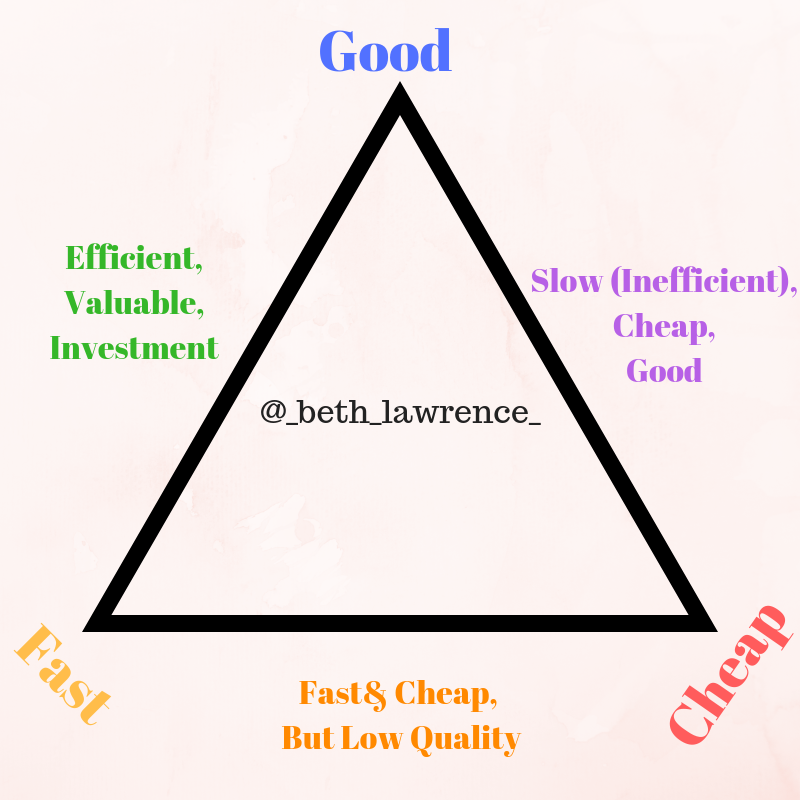Pick Any Two
In business, there is a saying that “You can pick any two, but you can’t have all three: fast, good and cheap.” With event planners, that rings especially true.
Investing in a great event planner is a decision that you shouldn’t take lightly, but looking at it as an investment is the first, and most important, part of the journey to hiring one.
Whether you’re looking for an event project manager to handle national or international events, or a regional Philadelphia-based event planner, consider the “matrix” before you sign that contract.
If you find a cheap event planner who focuses only on being fast, there is a real risk to quality there. This is a tangible risk that you and your guests will be able to see, feel, and (god forbid) taste. In my opinion, events are not a place to forsake quality. All of us have attended an event with lackluster food, bare-bones decor and poor communication between stakeholders. There is a reason they don’t usually happen more than once, and that is because the end result didn’t justify the means.
Of course, there are good event planners that are cheap, but they are typically more inefficient and slow, and therefore less valuable. If you pay your planners hourly, this could actually wind up not being the cheapest option in the long run. You also run the risk of sponsors, speakers and partners becoming agitated if things are not at an efficient and fast pace throughout the duration of the planning process. These planners also typically have more clients than they can handle, to account for the overhead and revenue projections of their own agencies or freelance businesses. Therefore, it is a juggling game to figure out priorities day-to-day.
Investing in a good, fast event planner typically eliminates the option for being thrifty. Efficient processes are of the utmost importance when it comes to an event planner, as is being fast in responses to clients, speakers, sponsors, partners and guests. Imagine investing your money in an event as a sponsor, and not receiving answers to questions in a timely fashion. You’d have a pretty bad taste in your mouth toward the company that founded the event and the logistics team working on it, leading to a decreased chance of sponsorship renewal in years to come.
When you expect a superior product, you must also expect to invest in that product and the outcome. Of course, coming to a mutually-beneficial agreement from the beginning is key. In the end, when you’re busy entertaining sponsors and getting the value you need out of your event, rather than worrying about onsite logistics issues that could have been solved beforehand, you’ll know your investment was worth it.

